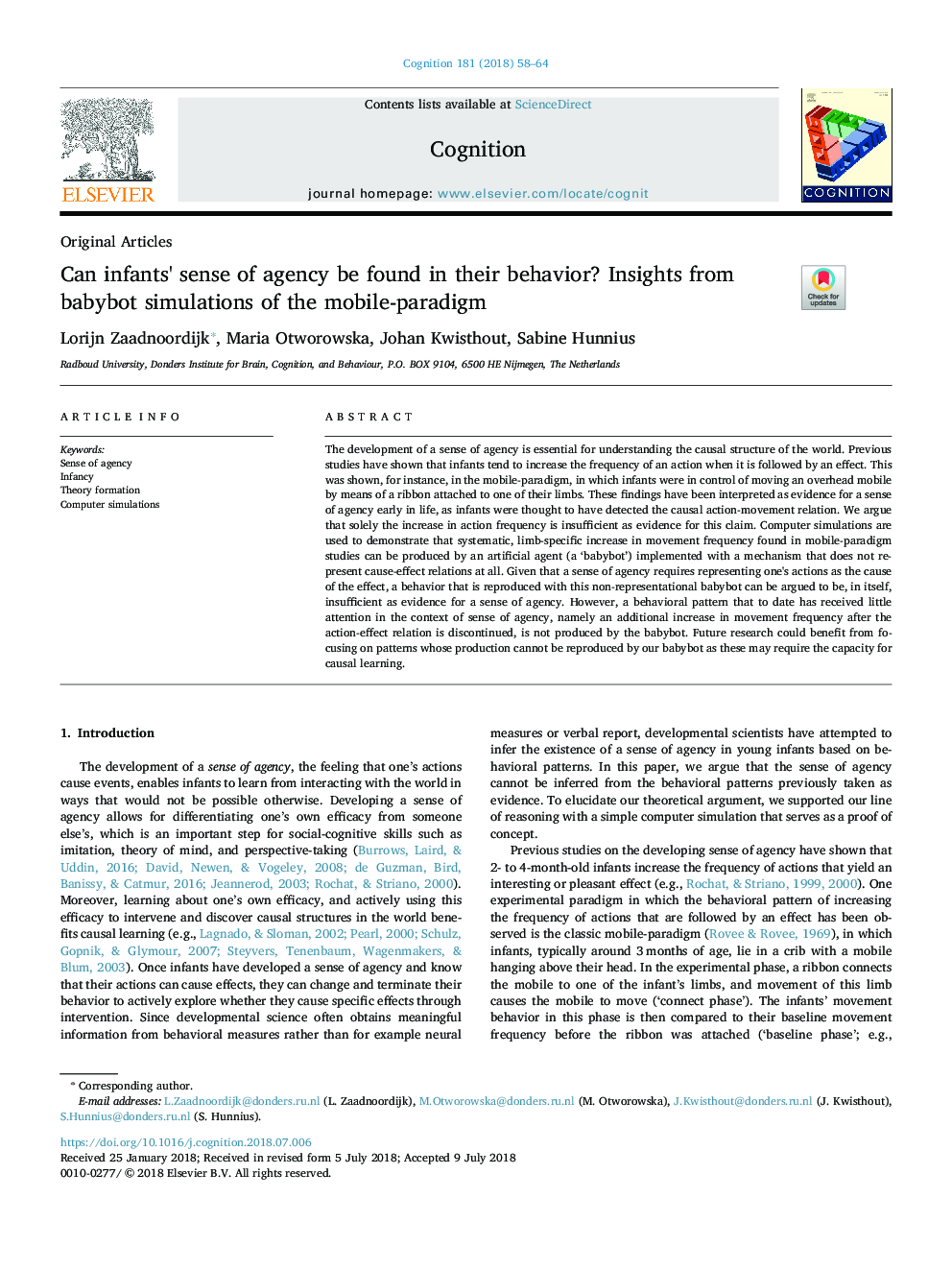| کد مقاله | کد نشریه | سال انتشار | مقاله انگلیسی | نسخه تمام متن |
|---|---|---|---|---|
| 7285015 | 1474086 | 2018 | 7 صفحه PDF | دانلود رایگان |
عنوان انگلیسی مقاله ISI
Can infants' sense of agency be found in their behavior? Insights from babybot simulations of the mobile-paradigm
دانلود مقاله + سفارش ترجمه
دانلود مقاله ISI انگلیسی
رایگان برای ایرانیان
کلمات کلیدی
موضوعات مرتبط
علوم زیستی و بیوفناوری
علم عصب شناسی
علوم اعصاب شناختی
پیش نمایش صفحه اول مقاله

چکیده انگلیسی
The development of a sense of agency is essential for understanding the causal structure of the world. Previous studies have shown that infants tend to increase the frequency of an action when it is followed by an effect. This was shown, for instance, in the mobile-paradigm, in which infants were in control of moving an overhead mobile by means of a ribbon attached to one of their limbs. These findings have been interpreted as evidence for a sense of agency early in life, as infants were thought to have detected the causal action-movement relation. We argue that solely the increase in action frequency is insufficient as evidence for this claim. Computer simulations are used to demonstrate that systematic, limb-specific increase in movement frequency found in mobile-paradigm studies can be produced by an artificial agent (a 'babybot') implemented with a mechanism that does not represent cause-effect relations at all. Given that a sense of agency requires representing one's actions as the cause of the effect, a behavior that is reproduced with this non-representational babybot can be argued to be, in itself, insufficient as evidence for a sense of agency. However, a behavioral pattern that to date has received little attention in the context of sense of agency, namely an additional increase in movement frequency after the action-effect relation is discontinued, is not produced by the babybot. Future research could benefit from focusing on patterns whose production cannot be reproduced by our babybot as these may require the capacity for causal learning.
ناشر
Database: Elsevier - ScienceDirect (ساینس دایرکت)
Journal: Cognition - Volume 181, December 2018, Pages 58-64
Journal: Cognition - Volume 181, December 2018, Pages 58-64
نویسندگان
Lorijn Zaadnoordijk, Maria Otworowska, Johan Kwisthout, Sabine Hunnius,